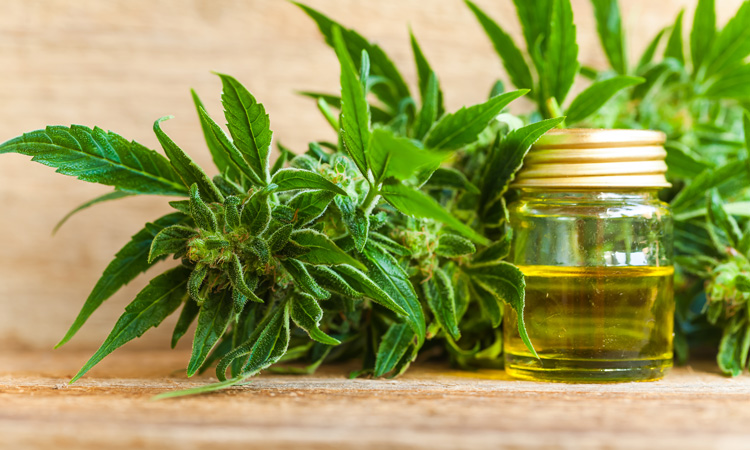Mile High labs calls for better European regulation
- Like
- Digg
- Del
- Tumblr
- VKontakte
- Buffer
- Love This
- Odnoklassniki
- Meneame
- Blogger
- Amazon
- Yahoo Mail
- Gmail
- AOL
- Newsvine
- HackerNews
- Evernote
- MySpace
- Mail.ru
- Viadeo
- Line
- Comments
- Yummly
- SMS
- Viber
- Telegram
- Subscribe
- Skype
- Facebook Messenger
- Kakao
- LiveJournal
- Yammer
- Edgar
- Fintel
- Mix
- Instapaper
- Copy Link
Posted: 2 January 2020 | Mile High Labs | No comments yet
Colorado-based CBD manufacturer, with rapidly growing European operation, presented their expertise to MEPs regarding the need for better regulation across the EU.


Mile High Labs, the world’s largest processor of hemp-derived cannabidiol (CBD), has visited the European Parliament to ask for clearer regulation and uniformity of the regulatory process across all member states. Currently, while the EU has adopted a classification of CBD as a ‘novel food’, implementation of that novel food characterisation is left up to each member state.
Speaking at an event organised by Laurene Tran, of Active, the European CBD trade association, (tradeactive.org) Wendi Young, VP of Regulatory and Compliance for Mile High Labs said the growth in CBD sales and the huge potential of the market going forward necessitates a clearer and more robust regulatory framework.
“All the data we have shows a huge increase in sales of CBD across the EU, and projections for even more intense growth going forward. That can and must be matched by a regulatory framework which is not only robust and clear enough to protect consumers, but also which is imposed across all the member states. We welcome the EU’s classification of CBD as a ‘novel food’ and we are working proactively in the UK and at European level to embrace that process. However, consumers need to be better protected through regulatory oversight to ensure that products are manufactured in accordance with appropriate good manufacturing practices.”
Recently, Mile High Labs, in conjunction with New Frontier Data, the global authority in data, analytics and business intelligence for the cannabis industry, released a survey highlighting how there are now a projected 500 million potential EU CBD consumers. The EU CBD Consumer Report: 2019 Overview, is the most comprehensive survey to date, administered to over 3,000 individuals across 17 European nations. The report examines European awareness of, and exposure to, cannabidiol (CBD), as well as reviews Europe’s overarching beliefs about CBD properties, its applications and possible policies.
The report highlighted how:
- 56 percent of respondents indicate they have heard of CBD, compared to 16 percent who report having used CBD or CBD products
- The most frequently indicated reason for using CBD is pain management (40 percent), followed closely by relaxation (34 percent) and stress relief (31 percent)
- 42 percent of CBD consumers report having replaced an over-the-counter medication with CBD
- Nearly one-third (30 percent) of European consumers indicate spending more than €100 per month on CBD products
- 35 percent of CBD consumers report getting at least some of their CBD from friends.
Christian Hendriksen of Mile High Labs said the potential of the market is huge, and highlighted how the company is spreading its customer base across Europe and further afield, strengthening the call for better consumer protection: “As Vice President of International Expansion for Mile High Labs, I see on a daily basis how the market is growing. This growth is happening, and will not slow down, so it is imperative that consumers are protected. Not everyone in the sector adopts the high standards of labelling, manufacturing, tracking and supply chain protection adopted by Mile High Labs. That is why we have been working closely with the regulatory authorities in the US and the UK.”
CBD is the non-psychoactive compound found in the cannabis plant, while isolate refers to its purified form. CBD remains legal in the UK so long as it does not contain THC, the component which produces the cannabis ‘high’. According to the Brightfield Group, the US CBD market is projected to reach $22 billion by 2022. Market research commissioned by the Centre for Medicinal Cannabis in London estimates that the CBD market is currently one of the fastest growing wellbeing product categories in the UK. At the current rate it will be worth almost £1 billion per annum by 2025, equivalent in size to the current entire UK herbal supplement market.
Related topics
CBD hemp & cannabis, Food Safety, Health & Nutrition, Regulation & Legislation
Related organisations
Active, Brightfield Group, Mile High Labs, New Frontier Data







